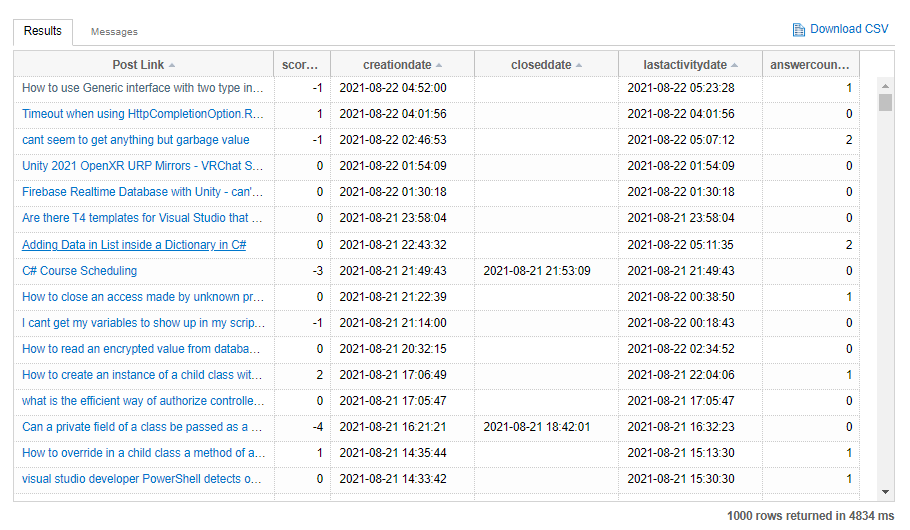Given that the limit on the number of tags is five, there is a possibility that a question that uses all five tags may not be using the best choice of tags for others to locate that question at a later date.
There is no option in search to identify such questions. For example, tagcount:5 is not available.
Is there another way to identify questions with exactly five tags, which could be used along with other search options. Similar to [tag1] -[tag2] tagcount:5.
This question is not the same as: How can I limit search results by the number of tags?, which would select one tag while excluding all others. In my case, I want to select all questions with five tags, then apply the tag search to identify questions that both include and exclude particular tags without regard to the other tag names.


> 4instead of= 5? It actually returns questions with six tags: data.stackexchange.com/stackoverflow/revision/1453885/1784789=given the fact that the alternative disturbed you so much.